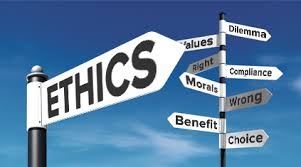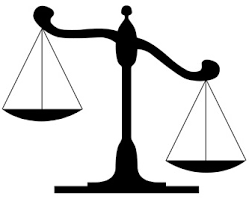Ethics Are Contagious: It Isn’t Just About the FCPA
 Lauren Connell, Managing Associate at The Volkov Law Group, joins us again with a posting on ethics and compliance. Her profile is here. She can be reached at [email protected].
Lauren Connell, Managing Associate at The Volkov Law Group, joins us again with a posting on ethics and compliance. Her profile is here. She can be reached at [email protected].
I work in the corporate compliance field – land of concern about potential FCPA violations. After the DOJ/SEC collected approximately $1.5 billion in criminal fines, an all-time record for yearly FCPA settlement amounts, CCOs have even more evidence to persuade directors and CEO why they need to implement an effective compliance program. But what corporate executives and boards may still be missing is the bigger picture: it isn’t just about compliance, it is also about ethics.
A strong compliance program aims at preventing FCPA violations. A strong ethics and compliance program will stop a potential FCPA violation and more. The funny thing about ethics is that they are contagious. You don’t tell employees to only be ethical when it comes to FCPA concerns (e.g. bribery or gifts, meals, or entertainment), you tell employees to be ethical all of the time.
That has huge implications for your company. An ethical workplace will improve employee satisfaction, employee retention, and corporate reputation. But, more importantly, it will keep your company out of trouble.
Not just FCPA trouble, but also trouble like Honda recently found itself in. The New York Times reports that the National Highway Traffic Safety Administration’s $70 million fine for “failing to submit reports of fatal accidents and injuries to the government[,]” is “the largest amount that the safety regulator has ever levied against an automaker.”
Honda was penalized because it dishonestly reported safety figures to the government.
It took a long time, years, for Honda to admit it had a problem despite an employee’s early identification of it. Honda has even tried to blame its failure on “programming and coding errors,” instead of owning up to the more likely scenario: no one likes to report bad news, especially to the government. So employees cut corners and lied.
Companies that have ethical cultures value honesty and don’t try to cover up bad news with lies. Ethical companies encourage their employees to conduct business honestly, supported by a “tone at the top” that doesn’t shoot the messenger but rather thanks the messenger. In the long run, that means they don’t get hit with $70 million fines for misreporting data.
 Compliance programs that focus exclusively on FCPA risks miss the point. It isn’t just about laws and rules for your sales force to avoid paying bribes, it is about doing business in an open and transparent way. Encouraging compliance and ethics leads people to internalize the reasons for rules and laws. A company that promotes these values will give its workforce the confidence to handle ethical “gray areas” that may arise, such as how to report safety data.
Compliance programs that focus exclusively on FCPA risks miss the point. It isn’t just about laws and rules for your sales force to avoid paying bribes, it is about doing business in an open and transparent way. Encouraging compliance and ethics leads people to internalize the reasons for rules and laws. A company that promotes these values will give its workforce the confidence to handle ethical “gray areas” that may arise, such as how to report safety data.
Justice Louis Brandeis wrote “sunlight is said to be the best of disinfectants.” A compliance-only program shines a spotlight on one issue but leaves the rest of the room dark. A compliance and ethics program opens up the windows to let light shine on all business operations. Don’t miss out on the opportunity to protect your company from risks on all fronts.















